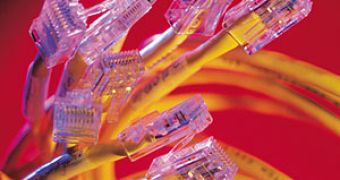The computer networks that make the Internet are the biggest energy powerhogs worldwide. As the price of energy increases, more and more signals point to the fact that energy savings across the Internet will be the key to a greener Earth.
According to a New Scientist report, Intel and Microsoft are already looking for viable solutions to cut down the energy costs. However, while PC systems usually consume energy depending on the amount of data that needs processing, network hardware consumes the same amount of power, no matter the data traffic.
This is mostly due to the fact that servers, routers and network switches are built to handle immense data loads, usually more than any corporate user could ever need. Their hardware design takes the same amount of power when working under full load as when almost idle.
Researchers claim that low data traffic across the network hardware would allow the equipments to spend more time in idle mode, a state that will account for significant energy savings. According to the same report, Sergiu Nedevschi of the University of California and his team-mates at the Intel Research labs have found a way to cut down on energy by 50 percent.
The power reduction was achieved by delaying the data flow into a computer network by just a few milliseconds. Slower data traffic would allow network hardware to run at significantly lower speeds, with short bursts of data sent in packets. The network devices are set to idle between bursts, which saves 40 to 80 percent of the total used energy.
The new discovery will not lead to dramatic energy savings in the US, as routers and switches take up a small amount of energy in the country. However, developing countries could take advantage of the new technology, as computer networks are growing at an exponential rate, while the energy resources are still scarce.

 14 DAY TRIAL //
14 DAY TRIAL //